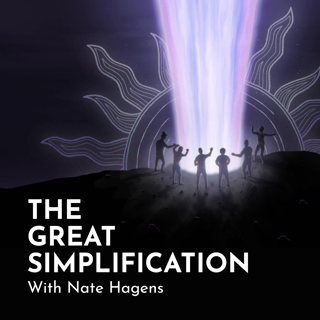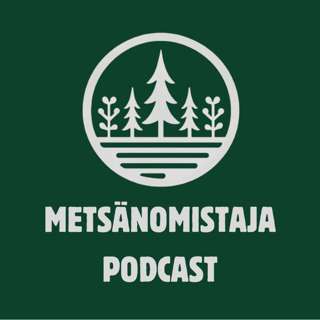
Dennis Meadows: “Limits to Growth turns 50 - Checking In”
On this episode, we meet with Professor Emeritus of Systems Management and author, Dennis Meadows. Meadows revisits Limits to Growth 50 years after it was published. Looking back, how does Meadows view the book? How much of the response to his description of overshoot was based in fear? Meadows offers advice to current leaders based on the models he developed in Limits to Growth. Why is it important to develop success indicators, and how can they be clearly communicated to the public? Further, Meadows explores the available leverage points to avoid the worst types of collapse at our current stage of crises. About Dennis Meadows: Dennis Meadows is the Emeritus Professor of Systems Management at MIT and the co-author of Limits to Growth and Beyond the Limits. He has received numerous awards and is the recipient of four honorary doctorates for his contributions to environmental education. He co-authored the pioneering 1972 book The Limits to Growth, which analyzed the long-term consequences of unconstrained resource consumption driven by population and economic growth on a finite planet. For Show Notes and Transcript visit: https://www.thegreatsimplification.com/episode/12-dennis-meadows
30 Maalis 20221h 19min

Rex Weyler: "Crisis in the Ecology Movement"
On this episode, we meet with ecologist, writer, and Greenpeace cofounder, Rex Weyler. Weyler explains how the ecology movement was hijacked by the environmental movement. How is climate change one of many issues that has a root cause of overshoot? Weyler also explores the dangers of relying on hope as a strategy. Why must we be careful about virtual signaling in the environmental movement, and how can we “sharpen the sword” as individuals? About Rex Weyler Rex Weyler is a writer and ecologist. His books include Blood of the Land, a history of indigenous American nations, nominated for a Pulitzer Prize; Greenpeace: The Inside Story, a finalist for the BC Book Award and the Shaughnessy-Cohen Award for Political Writing; and The Jesus Sayings, a deconstruction of first century history, a finalist for the BC Book Award. In the 1970s, Weyler was a cofounder of Greenpeace International and editor of the Greenpeace Chronicles. He served on campaigns to preserve rivers and forests, and to stop whaling, sealing, and toxic dumping. He currently posts the “Deep Green” column at the Greenpeace International website. He lives on Cortes Island in British Columbia, with his wife, artist Lisa Gibbons. For Show Notes and Transcript visit: https://www.thegreatsimplification.com/episode/rex-weyler
22 Maalis 20221h 30min

Are Americans Willing to Risk Nuclear War? | Frankly #2
An important dialogue with Chuck Watson on: 1) Why the U.S. public is naïve about what nuclear war means 2) The mechanics on how nuclear war with Russia could actually happen 3) How bad would nuclear war short and long term effects be? For Transcript visit: https://www.thegreatsimplification.com/frankly-original/frankly-02-are-americans-willing-to-risk-nuclear-war To Watch on Youtube: https://www.youtube.com/watch?v=H3LhvVyB_qo
18 Maalis 202230min

Nora Bateson: "Complexity Between The Lines"
On this episode, we meet with award-winning filmmaker, writer, educator, and President of the International Bateson Institute, Nora Bateson. Nora brings us beyond the descriptions of the physical science that underpins our predicament to the nuance and perception of the complexity that we live within. How can we improve our relationships with others, as well as the broader world? Nora helps us understand how systems dynamics inform our predicament. How does an ecosystem develop and mature through mutual learning? What are ways we can apply this thinking to our profit-focused superstructure? About Nora Bateson Nora Bateson is an award-winning filmmaker, writer and educator, as well as President of the International Bateson Institute, based in Sweden. Her work asks the question “How can we improve our perception of the complexity we live within, so we may improve our interaction with the world?” An international lecturer, researcher and writer, Nora wrote, directed and produced the award-winning documentary, An Ecology of Mind, a portrait of her father, Gregory Bateson. Her work brings the fields of biology, cognition, art, anthropology, psychology, and information technology together into a study of the patterns in ecology of living systems. Her book, Small Arcs of Larger Circles, released by Triarchy Press, UK, 2016 is a revolutionary personal approach to the study of systems and complexity. For Show Notes and Transcript visit: https://www.thegreatsimplification.com/episode/10-nora-bateson
16 Maalis 20221h 24min

What War in Ukraine means for Energy & Money | Frankly #1
In addition to regular Wednesday longform podcasts, this video is #1 of new series of short takes, "Frankly" which are framings and context on current world events. Today, I riff on longer term implications of Ukraine/Russia especially with energy and global systems. For Transcript visit: https://www.thegreatsimplification.com/frankly-original/frankly-1-what-war-in-the-ukraine-means-for-energy-and-money To Watch on Youtube: https://www.youtube.com/watch?v=0gLIP9odpVs
12 Maalis 202218min

The Human Superorganism - TGS Animated Series Preview
The second part of The Great Simplification Animated Series is now available! Visit http://thegreatsimplification.com to view now.
9 Maalis 20222min

Paul Ehrlich: “Was the Population Bomb Defused?”
On this episode, we meet with Professor Emeritus of Population Studies at Stanford University and author of The Population Bomb, Paul Ehrlich. Ehrlich discusses what has happened with the human population situation in the decades since he published The Population Bomb. Why has humanity not responded to our long-term sustainability challenges? How would Ehrlich frame contemporary discussions about population? In a wide-ranging conversation spanning stories about his appearances on The Tonight Show Starring Johnny Carson to how the environmental movement merged with corporate greenwashing, Ehrlich provides colorful and interesting commentary on the human predicament. About Paul Ehrlich Paul Ehrlich is the Bing Professor Emeritus of Population Studies at Stanford University and author of many books, including The Population Bomb. For Show Notes and Transcript visit: https://www.thegreatsimplification.com/episode/09-paul-ehrlich
2 Maalis 20221h 16min

Peter Ward: “Oceans - What’s the Worst that Can Happen?”
On this episode, we meet with author and paleobiologist Peter Ward. Ward helps us catalogue the various risks facing Earth’s oceans, how the Atlantic Ocean’s currents are slowing due to warming, what happened in Earths history when ocean currents stopped, and why a reduction in elephant poaching is contributing to the destruction of coral reefs. About Peter Ward: Peter Ward is a Professor of Biology and Earth and Space Sciences at the University of Washington. He is author of over a dozen books on Earth's natural history including On Methuselah's Trail: Living Fossils and the Great Extinctions; Under a Green Sky; and The Medea Hypothesis, 2009, (listed by the New York Times as one of the “100 most important ideas of 2009”). Ward gave a TED talk in 2008 about mass extinctions. For Show Notes and Transcript visit: https://www.thegreatsimplification.com/episode/08-peter-ward
23 Helmi 20221h 15min





















